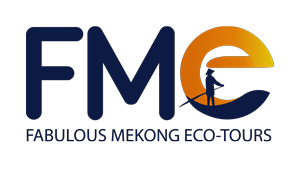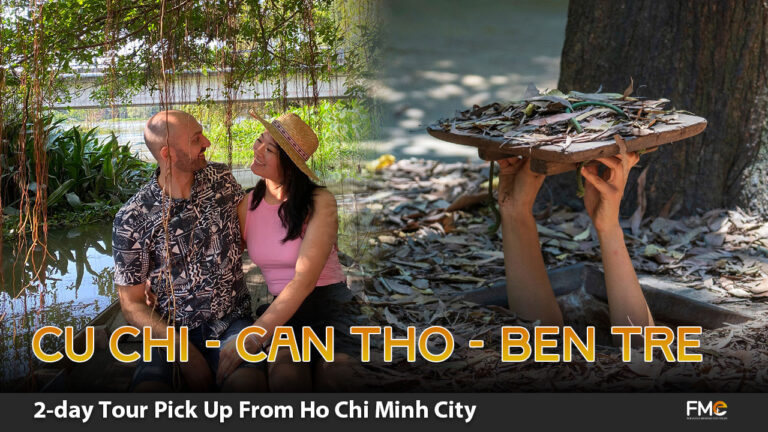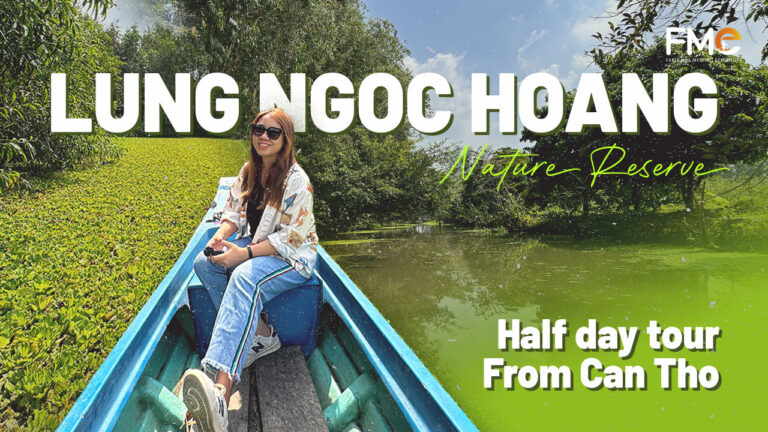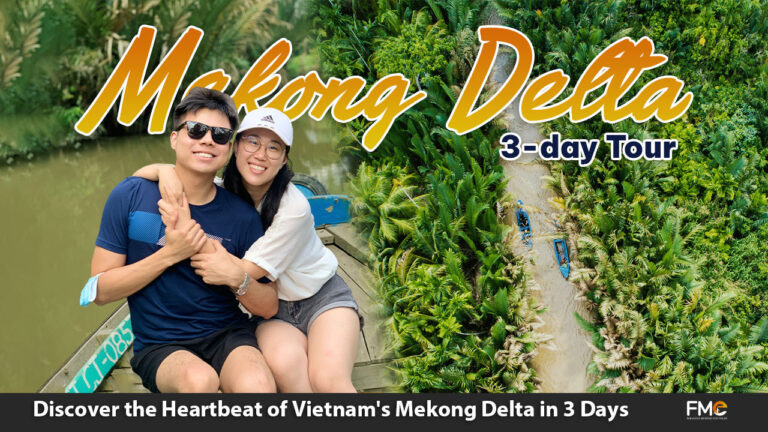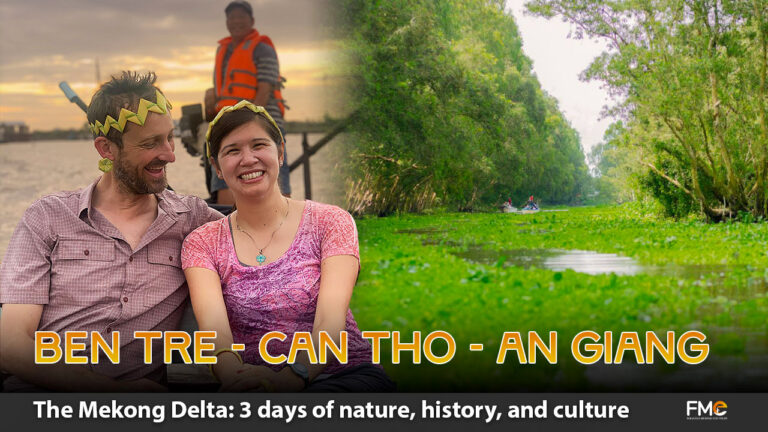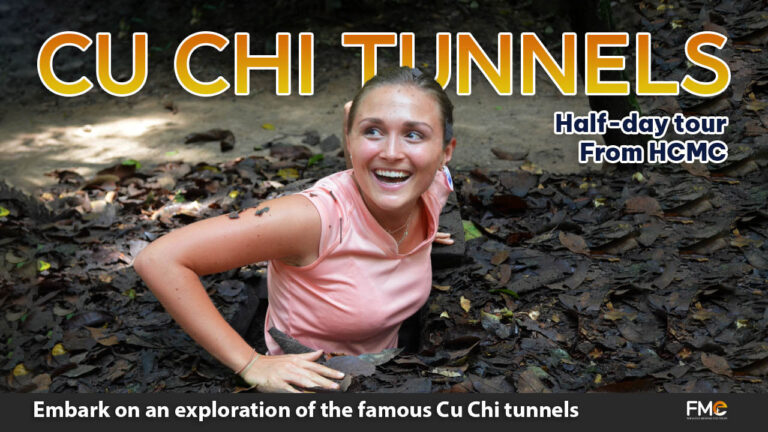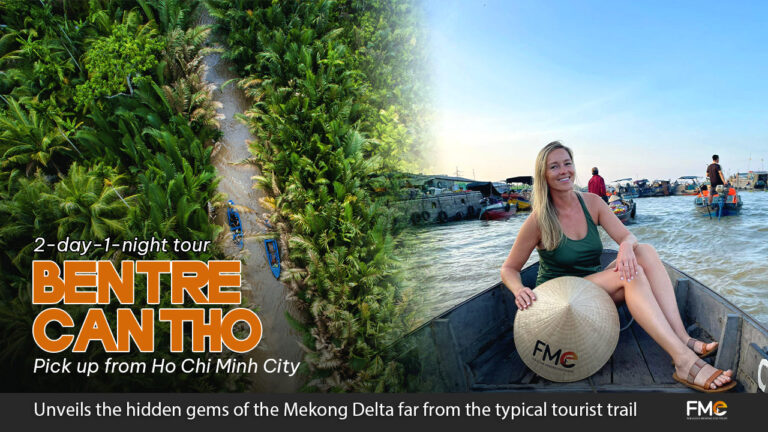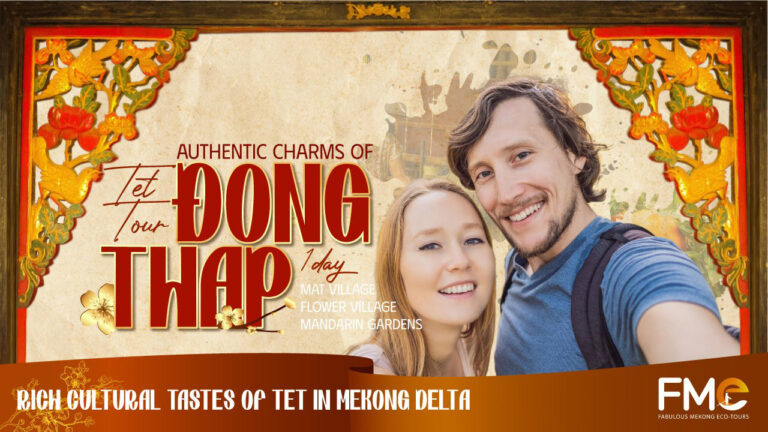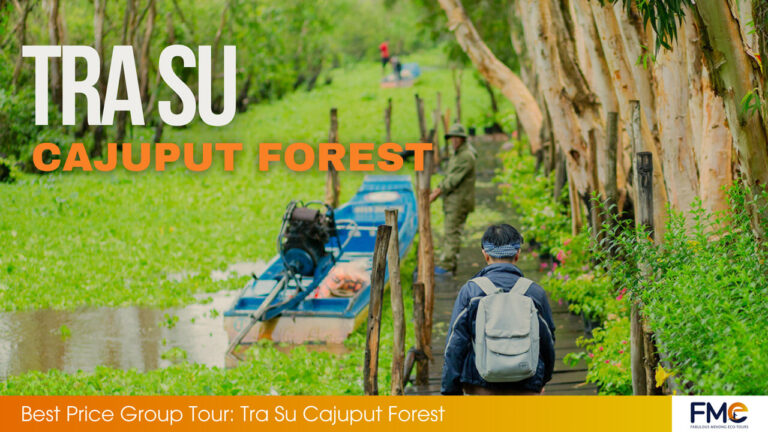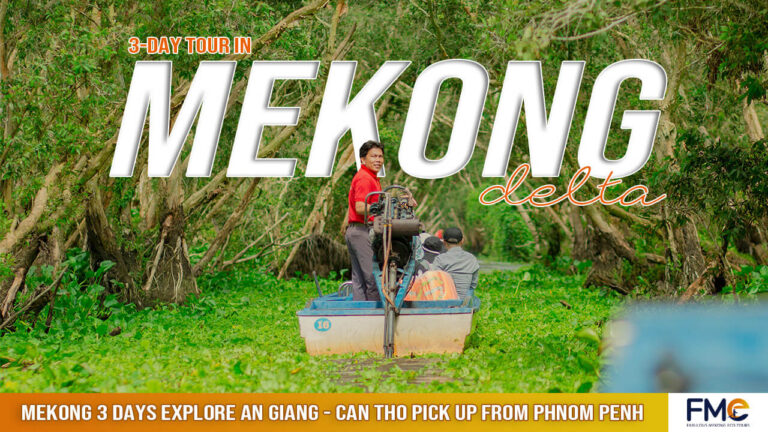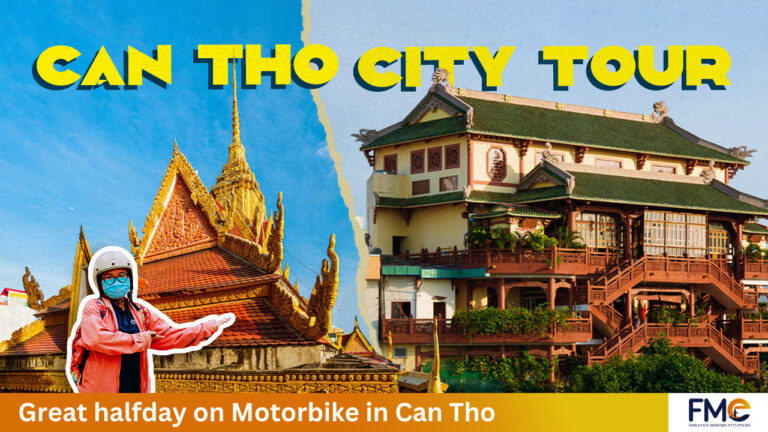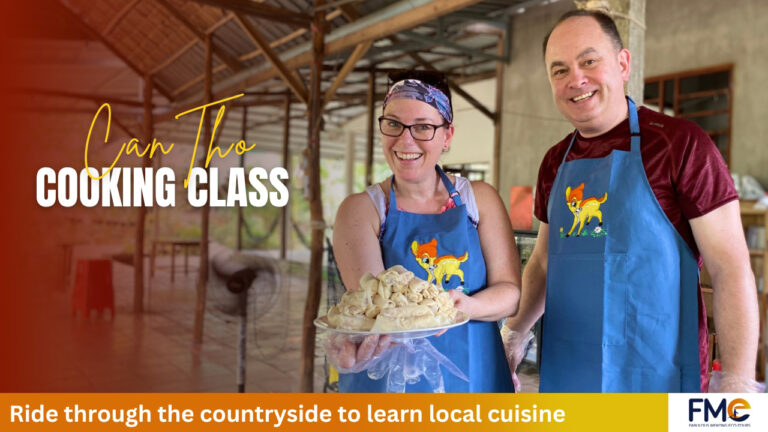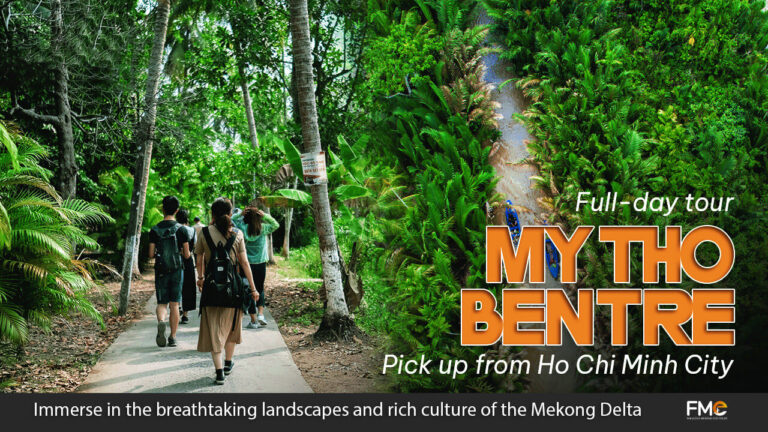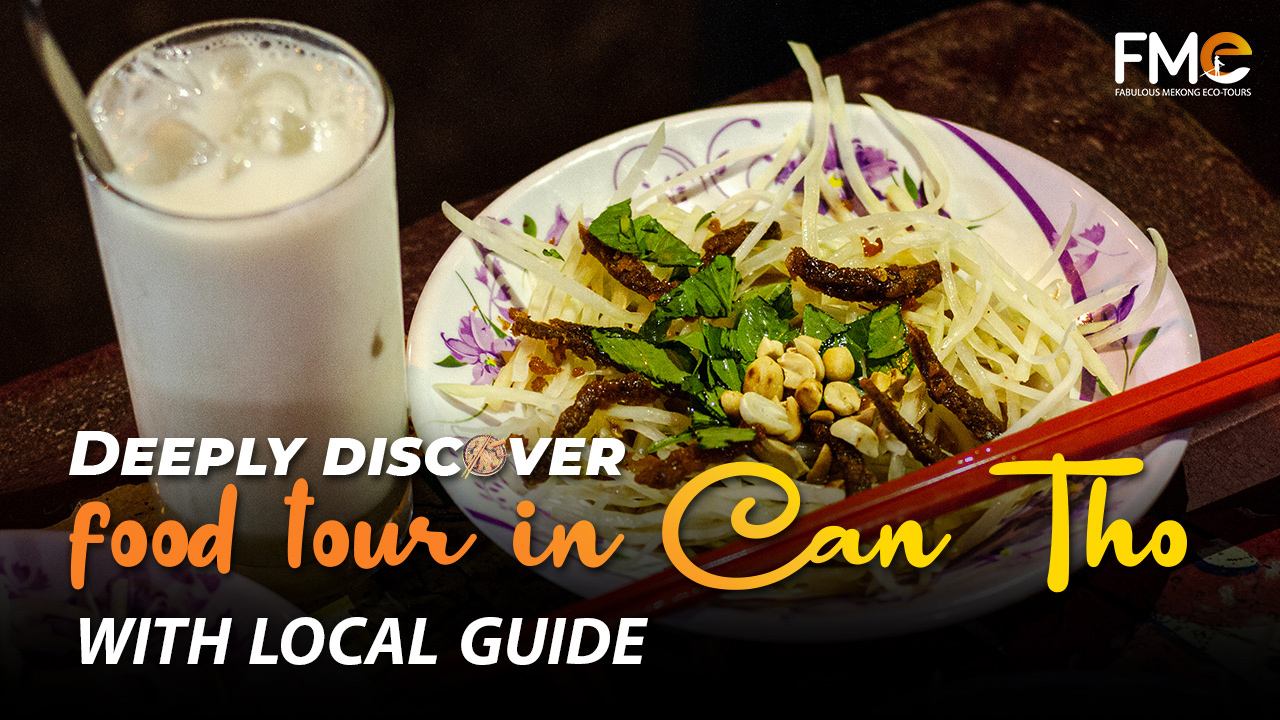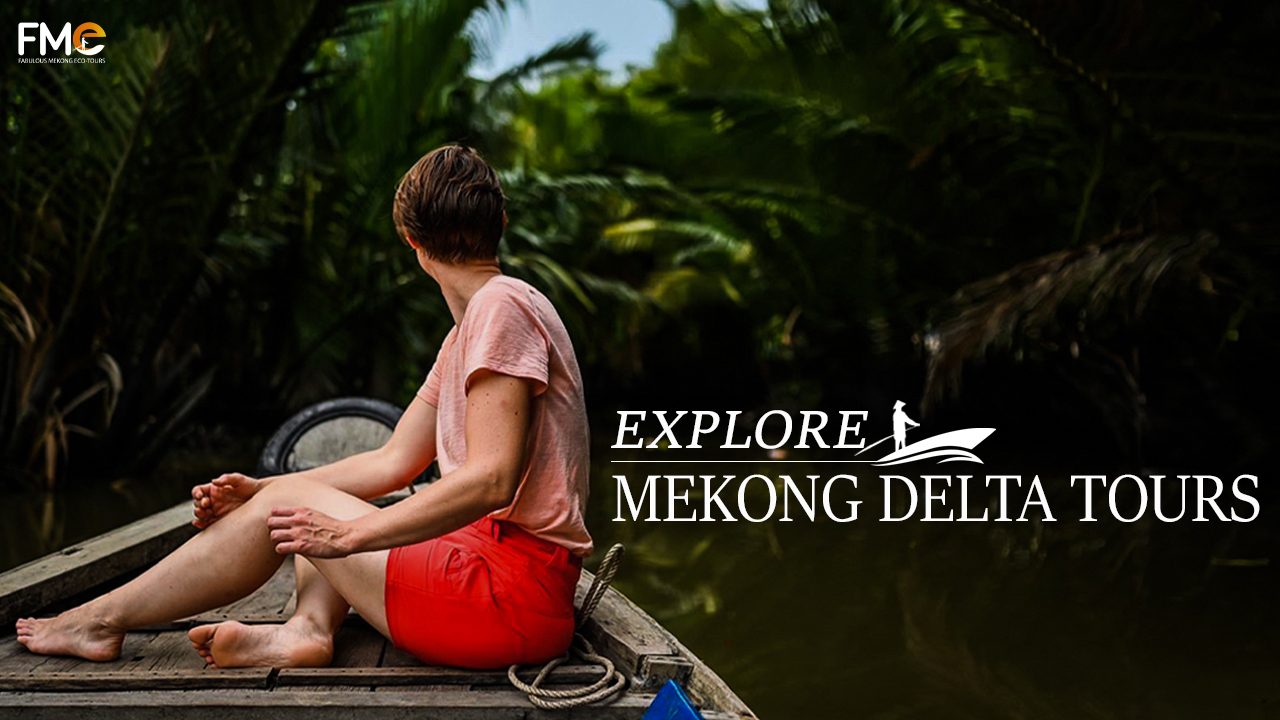
Mekong Delta Tours
Best Can Tho Food Tours
Immerse yourself in Mekong Delta culture and amazing cuisine. Get inspired by a food tours in Can Tho with voted dishes only found by locals.
Travel guide to Mekong Delta
From March 15, 2022, Vietnam has gradually reopened the economy. The Vietnamese government has loosened some Visa and Immigration policies to welcome foreign tourists.
– Covid test: Foreign arrivals will no longer have to take any COVID-19 tests to enter Vietnam from May 15, 2022.
– Types of accommodation when you come to Mekong Delta: hotel, hostel, farmstay, homestay, bungalows.
Mekong delta
Mekong delta has 12 provinces and Can Tho city which is one of the five biggest cities in Vietnam and is also the political, economic and social capital of the Mekong Delta. This city holds a special position in the development of the Mekong Delta. It is located on the bank of the Hau River and shares the borders with 5 provinces of Mekong delta. Can Tho is home to numerous rivers and canals like Hau River, Can Tho River, etc.
Every year, the flood contributes a huge amount of fertility to rice paddies, which benefits the wet rice cultivation of Can Tho in particular and the whole Mekong Delta in general. It is the waterways system and the geographical location that form the rustic lifestyle and characteristics of the locals here. Because this place is a meeting point of many provinces and different cultures, it has helped to build up distinct and outstanding characteristics of the people living here.
From the dawn of the reclamation, the immigrants to this land were the poor (soldiers, exiled prisoners, peasants with low social status). All came here with different cultures and customs. However, they chose to cohabit and respected each other. One by one, they all lived in harmony and unity. As a result, this has led to the dynamic manners of the locals here. Besides, the Mekong Delta people are easy to adapt to changes.
They do not attach their whole life in one place or village like Northern people. If their current living place is no longer favorable, they will move to more fertile land to live and cultivate. Moreover, the locals here are straightforward. They say what they think without being afraid of losing others’ hearts. Due to facing difficulties and determination to survive when first coming here has made them strong and righteous. Last but not least, people in the Mekong Delta disregard money.
When seeing someone in hardship, they willingly give everything they have to those in need because they believe that prosperity is easy to come and easy to go. As mentioned above, once upon a time, the Mekong River Delta was the wilderness; In the forest, in the river, there were many dangerous animals, toxic insects. Every year, floodwaters pour down from the upstream of the Mekong Delta. When many people from Central Vietnam and a few from Northern Vietnam went into Southwestern Vietnam, they had to face those difficulties.
They were afraid and realized that under such natural conditions if they were not united, they would die, so they depend on each other to live. This thing leads to a deep affection between people. They are willing to help each other when they have sickness, difficulty.
Moreover, the Southwest has many rivers, canals and fertile soil, so finding food is very easy. This creates the generous character of the Western people; in dealing with people they don’t just think for themselves. When guests come to the house, if they stay for a short time, the hosts serve tea, for a long time, the hosts serve rice and wine. During the war, in areas where there were many bombs, people had to evacuate to other peaceful areas; they are warmly helped by the people here for months.
Because, long ago they were far from their homeland, their original background; they did not have many relatives. Therefore, they needed someone to share their joys and sorrows in life. Whenever there was a guest coming to the house, they also welcomed happily and regaled kindly. In Vietnamese folklore, there is a proverb sentence, “Visitor coming home, not having tea, also having alcohol. The land of Can Tho was first opened and present on the map of Vietnam in the year of 1739, with its former name was Tran Giang.
In the year of 1876, after taking over the entire provinces of the Mekong Delta, the French colonialists established Can Tho county by taking the decree of Phong Phu (Tran Giang) and a part of An Xuyen and Tan Thanh districts of An Giang province. Mekong delta multi day tour brings you the experience of completely enjoying the beauty of this region in your own way.
You will be visiting the forest-nature reserve, the largest floating market of Vietnam, set sail around the Mekong Delta on a traditional long boat, hop off to explore the rural villages and visit a noodle factory, cacao farm where people make handmade chocolates and experience local life at the floating market, small canal. Along the way, sample typical Vietnamese drinks, breakfast foods, and snacks.
Local cuisine and cooking class
When you come to Can Tho, besides visiting the floating market, a local food tour is a must do when you have more time here. Each region of Vietnam has its own speciality dishes and the Mekong Delta is no exception. The area has a diverse population of Vietnamese, Khmer and Chinese settlers who all bring their own flavors to the table making Mekong delta’s dishes a sensational fusion of all these regional tastes. On the trip to a new place, trying local foods could be seen as a must-do thing to deeply discover and feel the place as well as the culture. Mekong Delta, known as having the biggest resource of rice in Vietnam, along with various types of other agricultural produce such as fruits, fishes, shrimps, crabs and poultries thanks to favored natural conditions, makes it famous for fresh and tasty foods. Mekong Delta people create amazing dishes with just ingredients they have in the area. Going out to the garden and picking up some herbs, vegetables, and catching some fish, they can prepare a delicious sour-sweet soup, for example. Or yummy cakes made of rice and coconut milk by skillful grandmas’ hands have been a beautiful part of every person’s childhood here. Add to that, cuisine in Mekong Delta is viewed as a new land, where several groups of people have lived harmoniously together and constructed a diverse culture with amazing specialties of each group. If Viet people have alluring crunchy Cha Gio (fried rolls), Chinese groups have Sui Cao (dumplings) as their traditional food. Meanwhile, Mam Bo Hoc (fermented fish hot pot) is a typical Khmer dish which always surprises those who have it the first time because of its special taste. And there are so many more dishes that you should experience when coming to this land. There is another special thing about the cuisine in Mekong Delta, or speaking generally in Vietnam, is the way locals eat. It is a beautiful traditional cultural characteristic of people here to sit down at the table and share everything together when they are eating. For them, eating time is a valuable time that all family members can see and care for each other. They never mind talking a lot at the time, sharing the same dish, or taking a piece of someone’s favorite food for him. All of those things reflect locals’ personalities. If you ever come to Mekong Delta, give yourself a chance to explore the cuisine here, because it is very often that what you have heard of totally differs from what you really feel then. Try it out, and make your own experience!
Weather
The climate in the Mekong Delta in general and in Can Tho in particular is hot and humid all year round because it is located in the tropical climate zone. The region has two seasons: the dry season from December to April and the rainy one from May to November. The mild climate and the advantages that nature has favored this land form its people to be easy going and welcomed. Mother Nature has favored the region with the annual flood. Unlike in central Vietnam where severe floods often result in death and destruction, the flooding season in the Mekong Delta is seen as a gift from heaven that brings tons of fish into the paddy fields along with alluvial deposits to fertilize the next crop. It usually lasts from July until the end of November. The flood season also helps people in the Mekong Delta earn a livelihood thanks to abundant aquatic resources. When the flooding is late, cropping and fishing activities are severely disrupted.
Means of transport
Air
Can Tho International Airport (VCA) is about eight kilometers from the city center. There are domestic flights to Hanoi, Phu Quoc, Da Nang and Con Son Island (Con Dao) serviced by Vietnam Airlines and VietJet Air.
Bus
Can Tho bus station (ben xe Can Tho) is around four kilometers southwest of the city center, across the Can Tho river. Several bus companies operate frequent departures (every 30-60 minutes) around the clock to Ho Chi Minh City, the journey taking four hours depending on traffic. Bus service is dominated by Phuong Trang (Futa) bus company, the bus ticket includes a free shuttle bus to/from the station. Arrive on a Phuong Trang bus at Can Tho bus station, head inside to the desk and ask for the free shuttle—it will drop you off at any hotel in the city centre. Likewise, your hotel can call Phuong Trang to arrange for a pick up and free shuttle to Can Tho bus station.
Phuong Trang sleeper bus to Ho Chi Minh City departs every hour round the clock, every 30 minutes during daylight hours. Often there’s more than one bus, adding buses to meet demand. The trip costs 110,000 dong, takes 4 hours including a 15 minute toilet break. Once you arrive in Ho Chi Minh City’s Mien Tay station, there’s also a free shuttle that will take passengers as far as their depot at the western edge of District 1. If you want to take it, once you disembark from the bus, ignore the taxi drivers and follow other passengers to the Phuong Trang minivans.
- Other Phuong Trang routes from Can Tho: Ca Mau: sitting bus departs regularly from 03:00-19:00. Costs 180,000 dong.
- Chau Doc: sitting bus departs from 04:00-19:00. Costs 100,000 dong.
- Da Lat: sleeper bus departs at 07:00, 20:30. Costs 325,000 dong.
- Rach Gia: sleeper bus departs up to ten times a day from 03:30-19:00. Costs 110,000 dong.
Other bus companies sample destinations and fares from Can Tho bus station:
- Thanh Buoi bus company
- HCMC: every 30-60 minutes. Costs 110,000 dong and takes 4 hours.
- Da Lat: bus departs at 06:00, 20:00.
- Costs 320,000 dong and takes 11 hours.
- Vu Linh bus company
- Ca Mau: departs every hour from 04:00-20:00. Costs 110,000-160,000 dong.
FAQ
These are some of the must-visit attractions in the area.
- Cai Rang Floating Market, Can Tho
- Bang Lang Stork Sanctuary, Can Tho
- Son Islet, Can Tho
- Tra Su Bird Sanctuary, An Giang
- Muoi Cuong Cacao Garden, Can Tho
There are some activities that tourists can do in the Mekong Delta:
Experience local life
Taking a walk or a bicycle ride around the village can give you a closer look at the locals’ lifestyle. You can see people napping on hammocks on the side of the street. You can see children riding their bicycles to school or even hear the sound of karaoke echoing from someone’s house.
Explore the Mekong Delta Floating Market
The most unique and peculiar thing about the Mekong Delta is none other than the floating markets, where you can see all the ways of life, daily activities, and culture of the people here. These markets have existed just for local farmers to sell fruits and vegetables to the folks on the land.
Visit pagodas and temples in the Mekong Delta
Vinh Trang Temple in My Tho and Bat Pagoda in Soc Trang are great recommendations for their unique architecture. They are representatives of the Buddhist temples in southern Vietnam.
Enjoy the fruits of the Mekong Delta
Coming to the Mekong Delta, you will find a dozen different kinds of tropical fruits that are grown here, such as pomelo, orange, coconut, mango, soursop, longan, etc. You can pay a visit to a local orchard to enjoy the fresh fruit while chatting with the locals.
Enjoy the specialities of the Mekong Delta
If you go to the Mekong Delta, you can enjoy the favorite folk dishes of the river region. Each dish leaves its own taste in the heart of each visitor.
Here are some suggestions for the food that you must try when visiting the Mekong Delta.
- Fish noodle soup – Bun Ca
- Snakehead fish thick noodle soup – Banh Canh Ca Loc
- My Tho noodle soup – Hu tieu My Tho
- Banh xeo
- Spring rolls – Goi Cuon
- Grilled Snakehead fish – ca loc nuong trui
Top 6 Souvenirs to Buy in the Mekong Delta:
- Cacao-based products
- Coconut candy
- Handicrafts such as hat leaves, coconut products, …
- Rice wine
- Tropical Honey
- Rice noodles
Besides necessary items, when coming to river regions, you should bring sandals or slippers to walk easily.
You should avoid carrying valuable jewelry. You only need to prepare cash or an ATM card.
When you go shopping, you should check the expiry date and products’ origin, and you must pay attention to your property when you are in crowded places.
You shouldn’t wear shorts, skirts, short dresses, or revealing clothes into temples or pagodas to show respect to religious beliefs.
There are quite a lot of mosquitoes in the Mekong Delta, especially when the rice harvests have just finished. So you should bring a bottle of anti-mosquito spray or cream.
The time you spend in the Mekong Delta depends on the place you want to visit. Here are some suggestions for you:
- 3 days trip tour from Tien Giang to Can Tho and An Giang
- 2 days in Can Tho
- 1 day in Can Tho
The distance between Ho Chi Minh City and the Mekong Delta depends on the destination you would like to visit. The shortest distance is about 60km and the longest distance can come up to 210 KM.
- Ho Chi Minh to My Tho, Mekong delta: 67 km, 1 hour 25 min transfer
- Ho Chi Minh to Ben Tre, Mekong delta: 84 km, 1 hour 50 min transfer
- Ho Chi Minh to Cai Be, Mekong delta: 109 km, 2.5 hours transfer
- Ho Chi Minh to Can Tho, Mekong delta: 166 km, 3.5 hours transfer
- Ho Chi Minh to Chau Doc, Mekong delta: 209 km, 5.5 hours transfer
